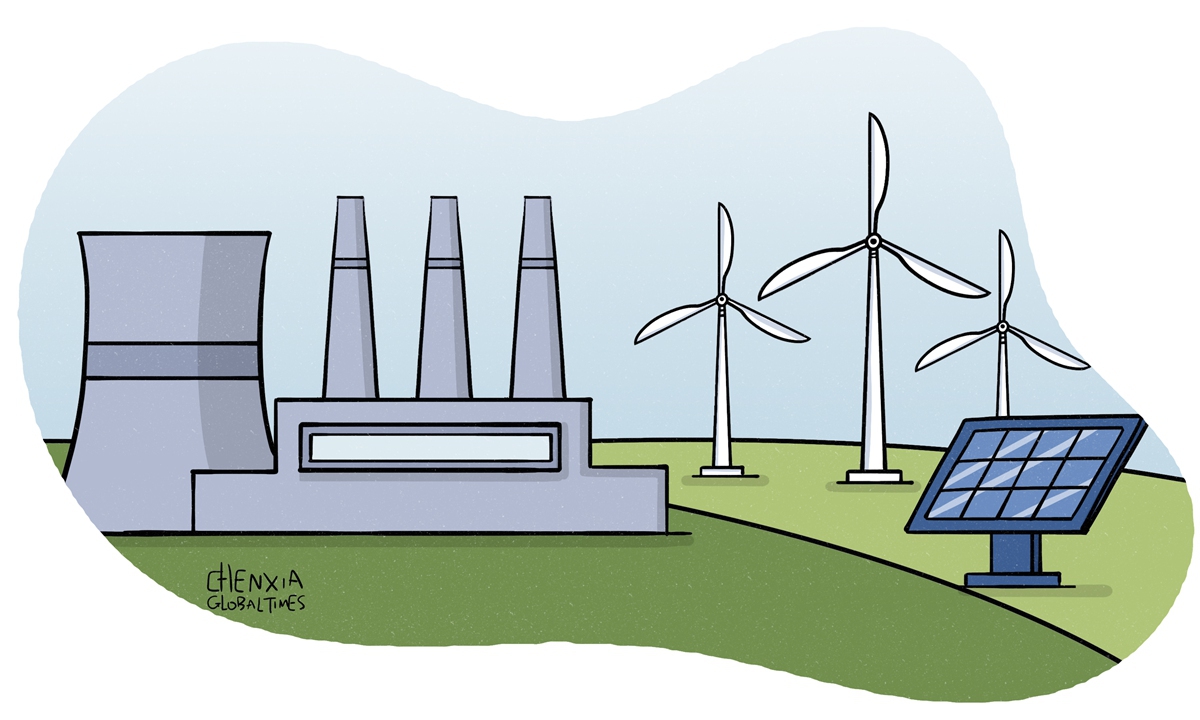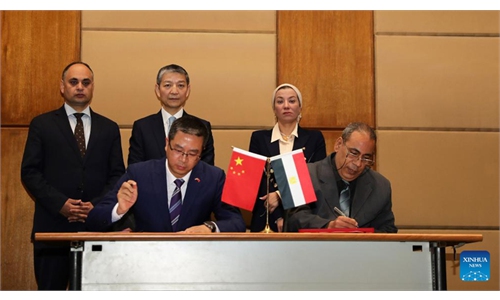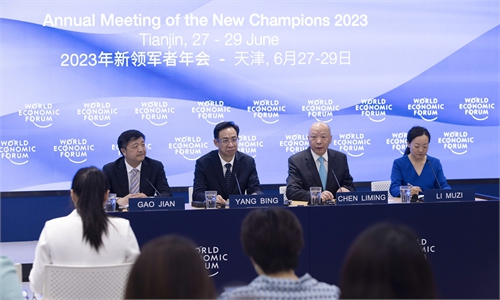
Illustration: Chen Xia/Global Times
Recent extreme high temperatures recorded in many countries in the northern hemisphere highlight the urgency of the global transition to clean-energy sources. And given China's dominance in the new-energy sector, it is time for the West to change their attitude of viewing climate change from a geopolitical perspective.Record-breaking heat waves from Asia to North America in recent days have led to some scientists forecasting that 2023 could become the hottest on record, according to media reports.
For instance, a scorching heat wave just hit North China's Beijing, Tianjin, as well as Hebei Province and East China's Shandong Province, with numerous weather stations clocking record high temperatures.
In India, extremely hot weather has swept across some of the country's most populous states, leading to fatalities, according to media reports. In Southeast Asia, record-breaking heat waves have gripped Thailand, Laos, and Vietnam for about two months, with temperatures floating between 43 C and 45 C. In the US, the states of Texas and New Mexico are on extreme heat alert, with temperatures in some cities exceeding 45 C. In Canada, the recent high temperature induced summer bushfires that have resulted in widespread air pollution.
If anything, exacerbating global heating may serve as a reminder that climate change is not a future problem that needs to be addressed, but something that requires more immediate effort. The global economy needs to accelerate the transition toward clean and new-energy sources by strengthening climate change cooperation, specifically, reducing the use of fossil fuels, promoting the use of renewable energy, and taking actions aimed at peaking carbon emissions and carbon neutrality.
Considering China's lead in renewable energy manufacturing capacity, tackling climate change and accelerating the transition to new energy should have been a highlight of China's cooperation with other world powers.
Yet, such cooperation faces serious geopolitical challenges. Viewing China solely as a strategic competitor, the US has roped in its allies to "decouple" from China in some high-tech areas, and there is growing concerns that new energy could be the next "semiconductor" in US-China rivalry.
Meanwhile, some politicians in Europe play up the potential energy security risks of depending on China's solar panels and other new-energy products, calling for independent industrial chains when it comes to a broad-base energy transition.
But if the US and its allies shun green energy partnership with China in one way or another, their own low-carbon transition will likely become slow and expensive, risking the global climate change agenda.
In many new-energy fields, China not only leads in technology, but also possesses the large-scale production capacity. For instance, China produces 85 percent of the global supply of solar cells, 88 percent of solar-grade polysilicon, and 97 percent of the silicon ingots and wafers that form the core of solar cells, according to data from the International Energy Agency.
China has spent heavily on renewable energy, and the country's recent technological advances and accelerated production and installation of renewable energy have effectively eased the power supply pressure under the unusual heat waves.
Of course, this is not to say that both Europe and the US must accept China's clean technology and new-energy products, but rather that geopolitical factors cannot and should not be a drag on the global energy transition agenda. Even if Europe wants to develop its own clean-energy technology, such as within the hydrogen sector, it should be noted that any clean-tech push will require international cooperation in terms of technological progress, application and manufacturing capacity.
China has always attached great importance to cooperation with US and European enterprises in this field, and China is also an important market for some of their main products and technologies.
Unlike semiconductors, the development of the renewable energy sector is critical to a low-carbon, sustainable future for the whole of humanity, which means that global cooperation on climate change cannot wait or be derailed by geopolitical factors.
Under such circumstances, the US and its allies would be better off making responsible choice in reducing political interference in the new-energy industry and focus on tackling climate change.



